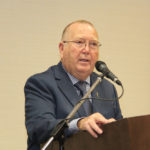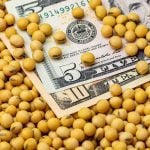
Tag Archives Ottawa

Ottawa’s Agriculture Day gathering a sector-wide affair

GFO quits Grain Growers of Canada
Grain Farmers of Ontario flags national group's 'governance' and structure
Glacier FarmMedia sets up shop in Ottawa
A Prairie journalist goes to Ottawa to cover agriculture for you
Manitoba’s ‘climate and green’ plan good policy, smart politics
It's often easier and safer to oppose something than to come up with a plan and implement it

CN car fulfilment dropped in weeks 11 and 12
However, the company says it is bringing more crews and power online to pick up the pace

Mazier defends KAP’s approach on ‘made-in-Manitoba’ carbon tax
He says the position was developed democratically and KAP got much of what it wanted to reduce the negative impact on farmers

Aid refusal fuels flames of western alienation
Our History: November 1999

Purple farm fuels exempted from Manitoba carbon tax
The government is emphasizing the newly released ‘Made-in-Manitoba Climate and Green Plan’ is much more than just a carbon tax and is seeking citizen feedback

4-H’ers dig into soil health policy and education
Soil health was a repeat topic as 4-H members from around the world turned their attention to sustainable agriculture and food security

Analysis: AgriStability review welcomed, but can it be fixed without more money?
KAP says in 2013 the program switched from farm income stability to disaster relief


